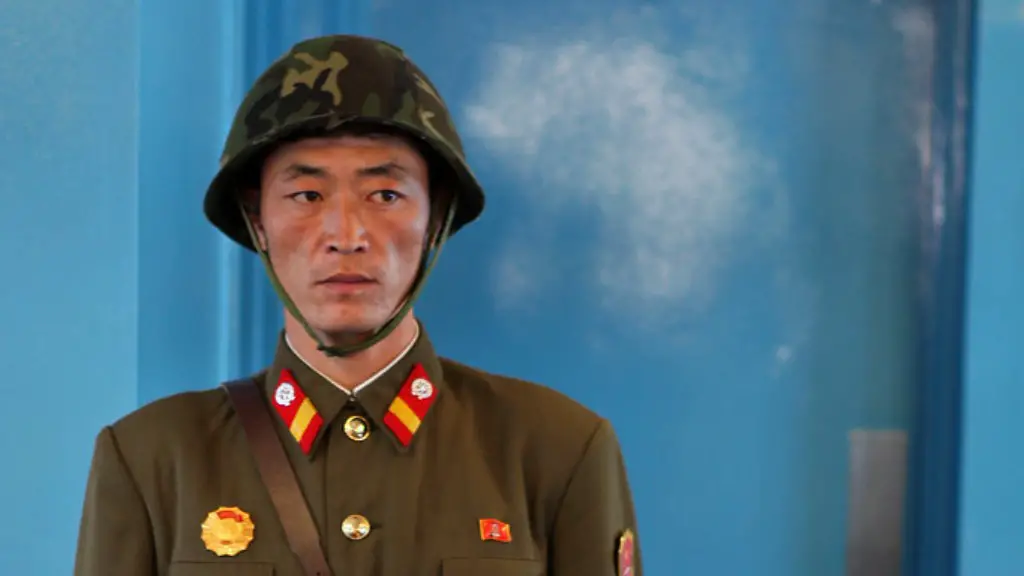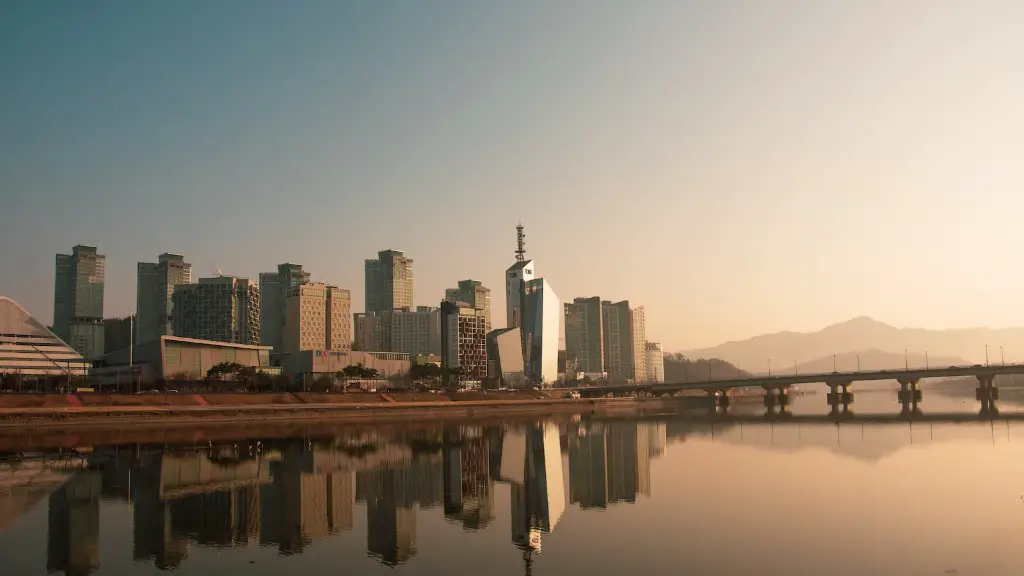Since the end of the Cold War, North Korea has been on the defensive, taking on the role of ‘rogue nation’ and generating the hostility of much of the international community. With its advanced nuclear capabilities and aggressive rhetoric, North Korea has emerged as a major threat to global security. But exactly what kind of threat does North Korea pose? This article seeks to explore the issue by looking at North Korea’s nuclear capabilities and weapons development, its willingness to use these weapons, and its regional ambitions.
Nuclear Capabilities
North Korea is one of only eight countries that possess nuclear weapons, and the only one not part of the Non-Proliferation Treaty. North Korea is estimated to have between 10 and 20 nuclear weapons, and it is believed to be actively working to improve its abilities in this area. It has tested several nuclear bombs in the past few years, and the fear is that it is slowly edging closer to being able to launch a nuclear strike on different parts of the world. North Korea has already demonstrated its capability to launch shorter-range missiles, and some experts have argued that North Korea may eventually be able to reach targets in North America.
Willingness to Use Weapons
North Korea’s willingness to use its nuclear capabilities is another major source of concern for the international community. The country’s leader, Kim Jong-un, has made it clear that he is not afraid to use force. He has threatened war on a number of occasions, and has demonstrated his willingness to attack South Korea in the past. This has caused alarm in the region, with South Korea and Japan in particular taking steps to bolster their own defenses in case of a North Korean attack.
Regional Ambitions
North Korea’s ambitions in the region are also a major source of concern. Despite being an isolated nation, North Korea has a large number of allies and has shown a willingness to use them for its own ends. It has provided support to many different groups in the region, from terrorist groups to oppressive governments. As a result, many countries in the region view North Korea as a destabilizing force, and worry about the potential for it to intervene in regional conflicts.
Conclusion
North Korea poses a substantial threat to the world, and it is important that the international community takes steps to contain the threat. North Korea has a large arsenal of nuclear weapons, which it has demonstrated its willingness to use, and its regional ambitions could easily result in further conflict. While North Korea has been relatively quiet in recent years, it is important to remain vigilant and to take any measures necessary to ensure global security.
Geopolitical Implications
North Korea’s nuclear capabilities and ambitions have far-reaching geopolitical implications. In a region already divided by decades of animosity, North Korea’s nuclear ambitions have exacerbated tensions and increased the possibility of regional conflict. Moreover, North Korea’s nuclear arsenal serves as a deterrent, limiting the ability of regional powers to respond to aggression. This dynamic has led neighboring nations, such as China and South Korea, to try to reign in North Korea’s nuclear program. Moreover, the United States and other Western powers have taken steps, including economic sanctions, to try to limit North Korea’s nuclear ambitions.
The Legacy of the Cold War
The current tensions in the region can partially be attributed to the lingering effects of the Cold War. North Korea inherited its nuclear program from the Soviet Union and has been actively expanding its capabilities ever since. In response, Western powers have sought to contain North Korea’s nuclear ambitions, often through economic sanctions and diplomatic isolation. The complex geopolitical dynamics have changed over time, but they remain heavily influenced by North Korea’s nuclear ambitions.
Containing North Korea’s Nuclear Program
Given the dangerous implications of a nuclear-armed North Korea, many countries in the region have sought to contain its nuclear program. Countries such as South Korea, Japan and China have sought to impose economic sanctions that limit North Korea’s nuclear capabilities. Additionally, many countries in the region have taken steps to bolster their own defense capabilities in an effort to deter potential North Korean aggression.
International Efforts to De-escalate the Conflict
Given the risk of war, in recent years, the international community has made efforts to de-escalate the situation in the region. The United States has been at the forefront of these efforts and has sought to engage North Korea through diplomatic channels. Additionally, China and Russia have also attempted to mediate the situation and to encourage North Korea to behave in a more constructive manner. While progress has been slow, there has been some progress towards peace in the region.
What Could Happen Next?
At this point, it is difficult to imagine how the situation with North Korea will evolve in the future. If a lasting peace is not achieved, the situation could easily spiral out of control and result in an armed conflict between North Korea and other regional powers. Only time will tell what the outcome of this crisis will be, and how the international community will respond.


